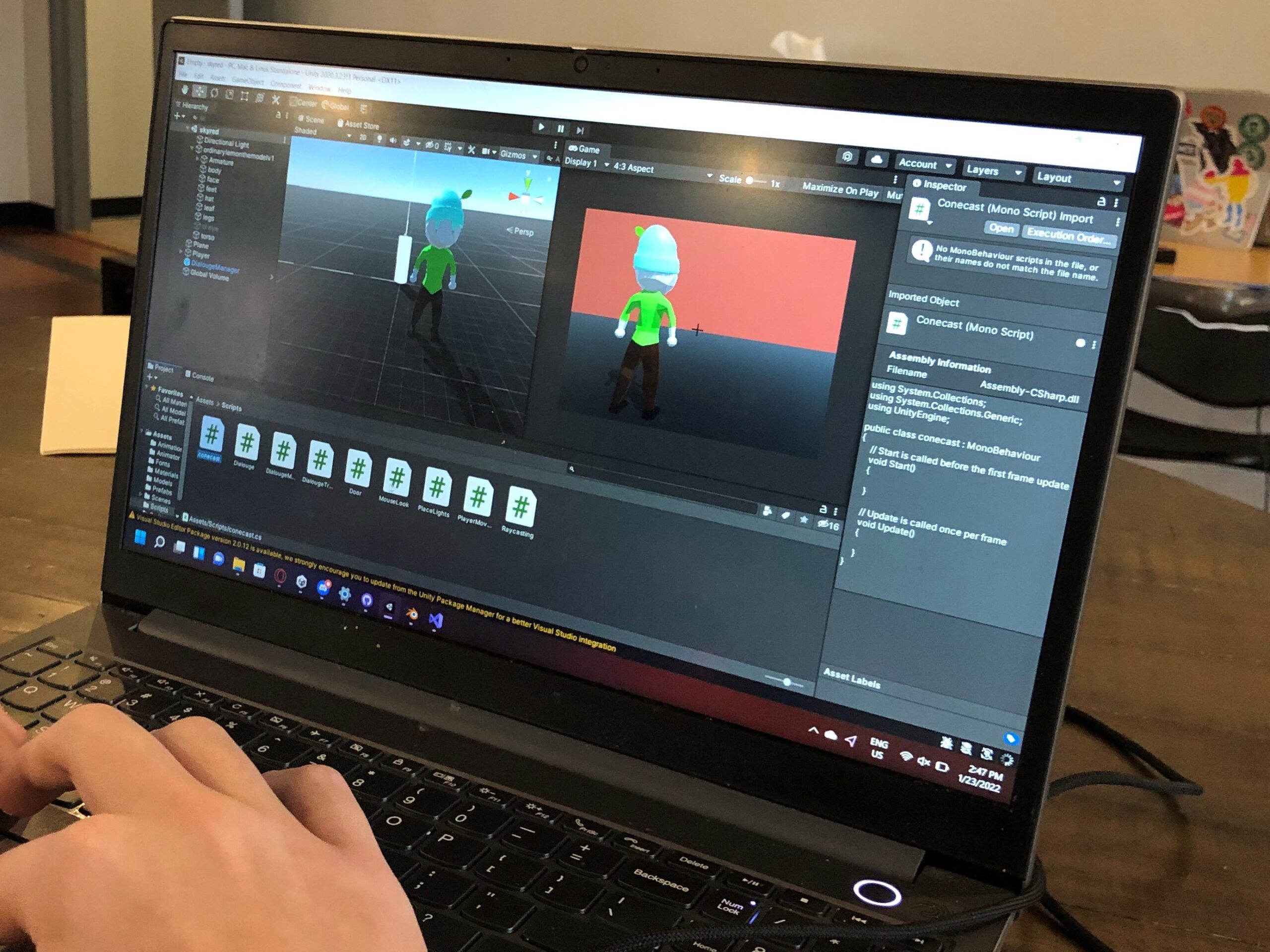
UNITY GAME DEVELOPMENT | Grades 7-12 | July 22-26 | $240
Offered the week of July 22-26 from 12:30 pm – 3:00 pm at The Maxx, 94 Railroad St., New Milford. Maximum 6 campers.
This topic provides a good introduction to Unity and its use for game development and the application of the programming language C# to a specific project. Read more details here .

